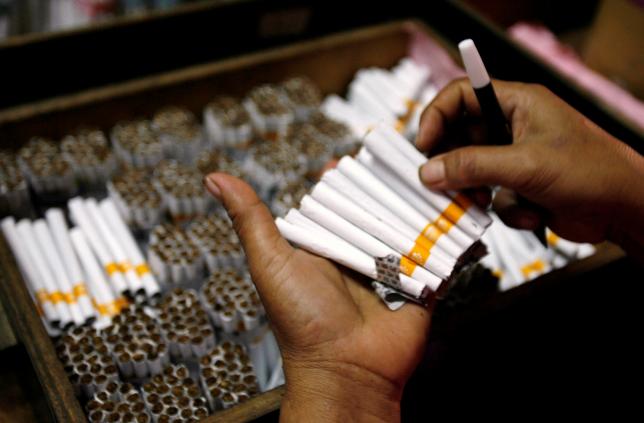
In Thursday’s meeting, issues pertaining to cigarette prices, decreasing government revenues from the sector, high rates of death caused by tobacco consumption and the increasing rate of smoking will be taken up, say officials.
The FBR has kept in place the third duty slab on cigarettes in the budget for upcoming fiscal year 2018-19 while setting aside recommendations of the stakeholders that had called for restoring the previous two-tier duty structure in order to make cigarettes expensive and discourage its consumption due to excessive health risks.
Ignoring recommendations of the Ministry of National Health Services, National Assembly Standing Committee on Finance and PAC chairman for increasing the excise duty to Rs44 per pack of cigarettes, the FBR raised the duty by only 96 paisa in the Finance Bill 2018.
According to officials, the FBR has collected only Rs87 billion in revenues from cigarette manufacturers in the ongoing financial year against the target of Rs120 billion. Though cigarette production had gone up 100% following introduction of the third duty slab, the FBR’s tax collection from the sector went down 10% in the current fiscal year, they said.
According to the Finance Bill 2018, the FBR has increased excise duty by 6% for the first slab that amounts to Rs4.48 per pack, 6% for the second slab that translates into Rs2 per pack and only Rs0.96 for the third slab. Pakistan is a signatory of the World Health Organisation (WHO) Framework Convention on Tobacco Control and under the treaty the country is bound to increase taxes to bring down tobacco consumption.
The National Assembly Standing Committee on Finance and the Senate Standing Committee on National Health Services, Regulation and Coordination had recommended to the government to scrap the third duty tier for cigarettes and revive the previous two-tier structure.
In a meeting held earlier with FBR chief, PAC Chairman Syed Khursheed Shah had spoken against the introduction of the third duty slab and asked the FBR head to review the structure as it had caused heavy losses to the national exchequer. Shah said the lower federal excise duty had increased health-related problems, caused a rise in the death rate among smokers and jacked up the rate of smoking in the country.
Ernst and Young, a chartered accountancy firm, had also said in its recommendations that the duty structure in Pakistan was not aligned with the duty structure of other developing countries.
Pakistan may consider adopting an ad valorem duty structure to maintain and gradually increase excise duty collection instead of a specific duty structure followed by developed countries like the US, Canada and Australia.
Furthermore, it said, tobacco consumption could also be controlled with substantially higher ad valorem rates and then setting a single rate for the entire class of brands, ranging from Rs91 to Rs140. Taking cognisance of the gravity of the matter, the Ministry of National Health Services, Regulation and Coordination had requested the FBR to reconsider the policy of reducing cigarette prices and withdraw the third slab created in the Finance Act 2017 to save people’s lives.
Published in The Express Tribune, May 3rd, 2018.
Like Business on Facebook, follow @TribuneBiz on Twitter to stay informed and join in the conversation.

1732184775-0/BeFunky-collage-(80)1732184775-0-165x106.webp)

1731933289-0/BeFunky-collage-(68)1731933289-0-165x106.webp)













COMMENTS (2)
Comments are moderated and generally will be posted if they are on-topic and not abusive.
For more information, please see our Comments FAQ